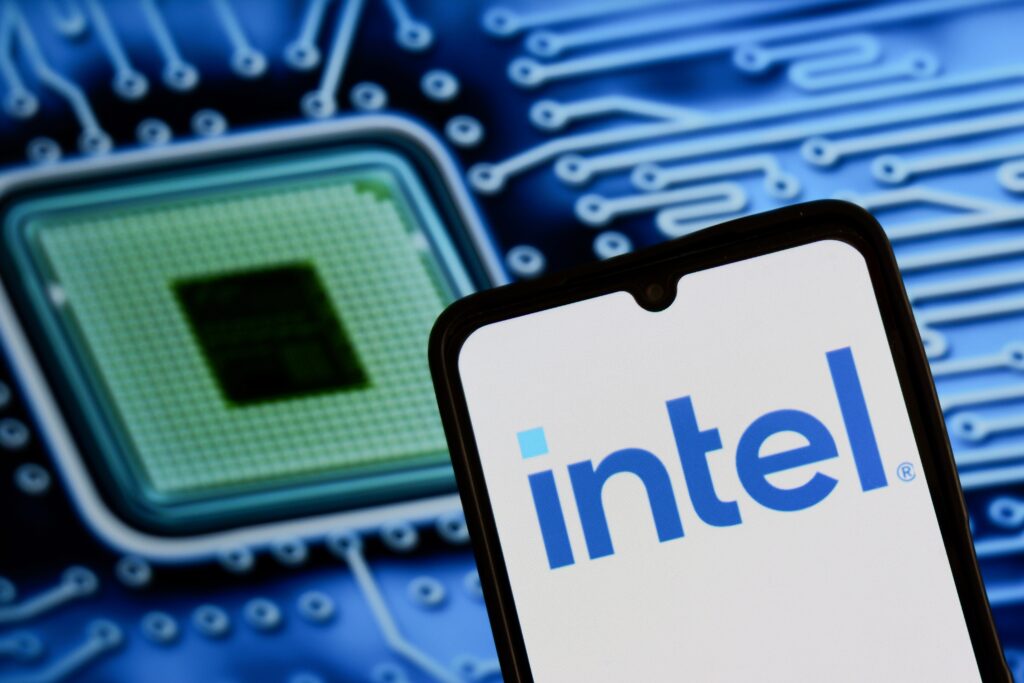US Secretary of Commerce Howard Lutnick announced on Friday that Washington will acquire a 10% stake in Intel.
“This historic agreement strengthens American leadership in semiconductors. It will grow our economy and secure our technological edge,” Lutnick wrote on X. He added a photo of himself with Intel CEO Lip-Bu Tan.
President Donald Trump disclosed the deal earlier in the Oval Office. He called it “a great deal for them.”
Shares of the Santa Clara-based chipmaker rose more than 5% on Friday.
Intel confirmed that the US government will invest $8.9bn (£6.6bn) in its common stock.
Government uses redirected grants
Intel said the money will come from grants already awarded but not yet paid. That includes funds from the CHIPS and Science Act, signed during President Joe Biden’s administration.
“As the only semiconductor company conducting leading-edge R&D and manufacturing in the US, Intel is committed,” Tan said. “We will ensure the world’s most advanced technologies are American made.”
Tan praised Trump’s strategy on US chipmaking. He said the focus drives “historic investments in an industry vital to security and the economy.”
The CHIPS Act was designed to rebuild semiconductor production inside the United States.
Intel falls behind Nvidia
Intel has struggled to expand its chip capacity in recent years. It trails Nvidia, whose market value has soared beyond $4tn, while Intel’s remains near $100bn.
Once a Silicon Valley pioneer, Intel missed the rise of mobile technology. It also failed to dominate artificial intelligence, where Nvidia now leads.
Trump intensifies pressure on CEO
Trump has recently criticised Intel and demanded Tan’s resignation. He accused the CEO of questionable links to China.
The president described Tan as “highly conflicted” over alleged investments in companies connected to the Chinese military.
Tan dismissed the accusations as “misinformation” in a note to staff. He defended his conduct, saying he had always followed legal and ethical standards.
Tan, a US citizen, was born in Malaysia and grew up in Singapore. US law allows citizens to invest in Chinese firms.
Trump’s criticism followed a letter from Republican Senator Tom Cotton to Intel’s board. Cotton questioned whether the company could safeguard taxpayer money and meet security obligations.
After the dispute, Tan visited Trump at the White House.
White House highlights bold move
Press Secretary Karoline Leavitt described the proposal as “a creative idea that’s never been done before.”
Reports said the Trump administration also required Nvidia and AMD to give Washington 15% of revenue from AI chip sales to China.
Jacob Feldgoise, Senior Data Research Analyst at Georgetown University, compared the Intel stake to earlier grant funding.
“It serves the same purpose,” Feldgoise said. “It shows stronger government involvement in markets to achieve economic and security goals. The aim is regaining technological leadership in chipmaking.”
The deal is unusual in today’s climate but not without precedent.
Previous examples of government stakes
During the 2008 financial crisis, Washington took a majority stake in General Motors as bankruptcy loomed. The government later withdrew, recording a $10bn loss.
Feldgoise noted that Trump’s administration took a similar approach earlier this year with MP Materials. The Nevada-based company extracts rare earth metals.
That agreement drew scrutiny from watchdogs after it emerged that the Department of Defense relied on a Cold War-era law to bypass procurement rules.

